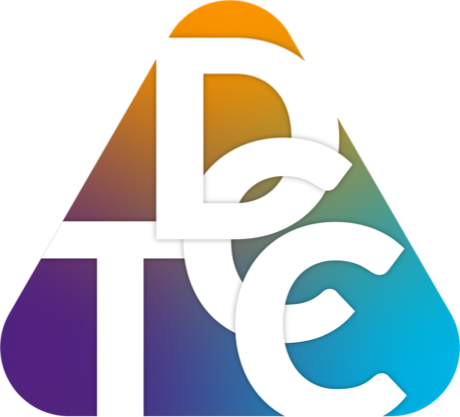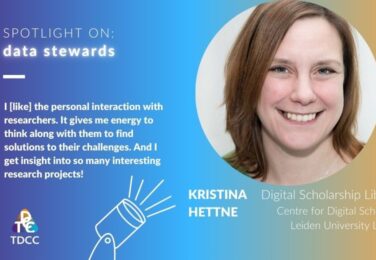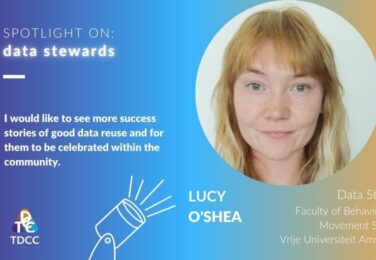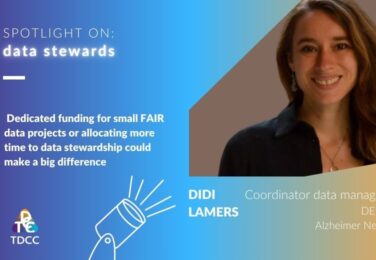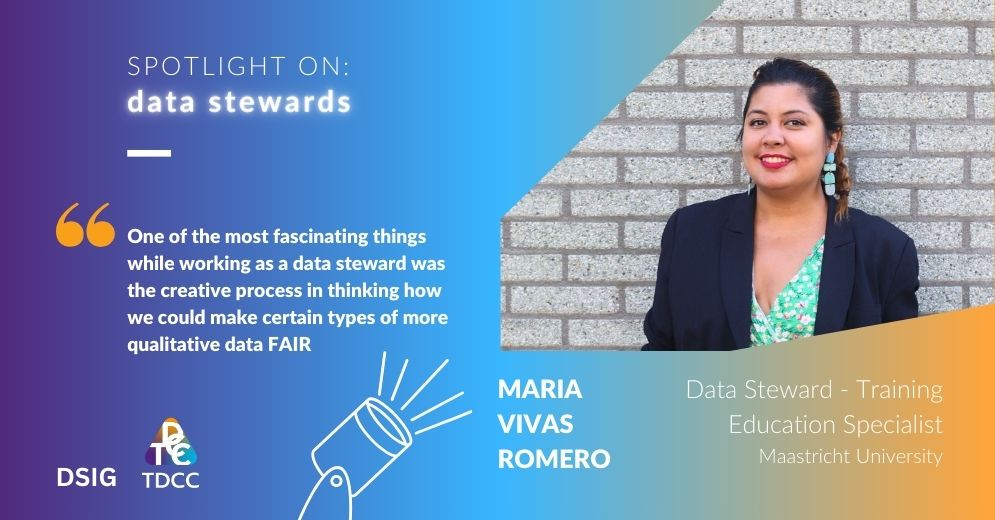
Spotlight on: Maria Vivas-Romero
Every other week, the Thematic DCCs and the Data Steward Interest Group (DSIG) put the spotlight on one research data steward working in the Netherlands, to stimulate knowledge exchange and peer-to-peer learning.
What drew you towards the research data management field?
I have a PhD in Political and Social Sciences. However, I have always been an anthropologist at heart. During my thesis, I worked with migrant domestic workers and looked into the inequalities in their access to transnational social protection. I loved doing research. I did not however enjoy the competition and publish or perish culture that surrounded us, at least back in the days. I was looking for a way to stay within the academic world but not necessarily while doing research. I wanted and still want to contribute to the overall knowledge creation process through science. I then saw the job opening for a data steward on Academic Transfer. The job had a component of social sciences and humanities. I then thought this would be a great opportunity for me. I did not know about FAIR or open science then. Nevertheless, while preparing for the interview I looked into and thought this was an excellent way to fight inequalities in access to knowledge and technology.
I became FASoS (Faculty of Arts and Social Sciences) data steward in 2019. I recently changed jobs for the Faculty of Medicine and Life Science this past summer. Teaching how to do FAIR has become my favorite thing about this job and this new position offers more of that.
What is an activity/task of your role that you find yourself looking forward to?
Cultural changes happen through education and awareness creation. Teaching creating educational material to train researchers on how to do FAIR is my favorite task. Next to this, one of the most fascinating things while working as a data steward was the creative process in thinking how we could make certain types of more qualitative data FAIR. FAIR comes from the data science world, where data might be all digital. This is not always the case for certain types of qualitative data inputs.
I mostly supported researchers who collected Qualitative data inputs. This data included interviews, ethnographies, collections of objects and notes. These types of data were challenging to FAIRIFY. I had to creatively think about how to make these data sets findable, accessible interoperable and reusable. We had no guidance available at the time. Now there are some guidelines available such as the guidebook published by DANS. This process became a trial and error process. I did the best I could while always trying to protect the integrity of research participants. One strategy was for example to keep all data stored locally, but to publish in repositories like dataverseNL the protocols to obtain the data, and good descriptions to allow others to know about the data and eventually request it. You can see some examples of this at: Faculty of Arts and Social Sciences (dataverse.nl).
What is something unexpected that you can offer help with, if a colleague reaches out to you?
I'm starting to also be involved in the conversation in open science in Latin America. I could perhaps be a linking pin with the communities of researchers there who are starting to think about this shift in culture.
I think we need to know ourselves, as data stewards or policy makers, why we are doing this. Otherwise, we run into the risk of open science and FAIR just becoming buzzwords and not real actions. Another challenge is to make these perspectives more than just Global North perspectives and expand these notions to other contexts. Open science needs to be more than just a perspective of opulent nations.
The open science and FAIR movements are key to the democratization of knowledge, and we have the opportunity to influence how this takes place. We need open science now more than ever with challenges like increasing health issues, climate change and other issues of our times.
What do you think your community of research data professionals is missing?
The UFO profile already improved a lot our visibility and professional paths. However, we need more clear career paths and recognition.
What is a topic you would want to collaborate on with others?
The creation and improvement of trainings and other educational material for FAIR and open science. It is important to find and address the intrinsic motivations for researchers to join the open science and FAIR movements. We cannot get researchers involved simply by translating guidance from one discipline to the other. We need to know more about the research culture and methodologies they use to collect the data.
How would you like to see your current field of work evolve in the next 5 years?
I would like to see an official education program for data stewardship, with clear career paths and recognition.
Get in touch with Maria: Maastricht University staff page | ORCID
Do you want to read other interviews published in the Spotlight on series? Visit the series' page.
